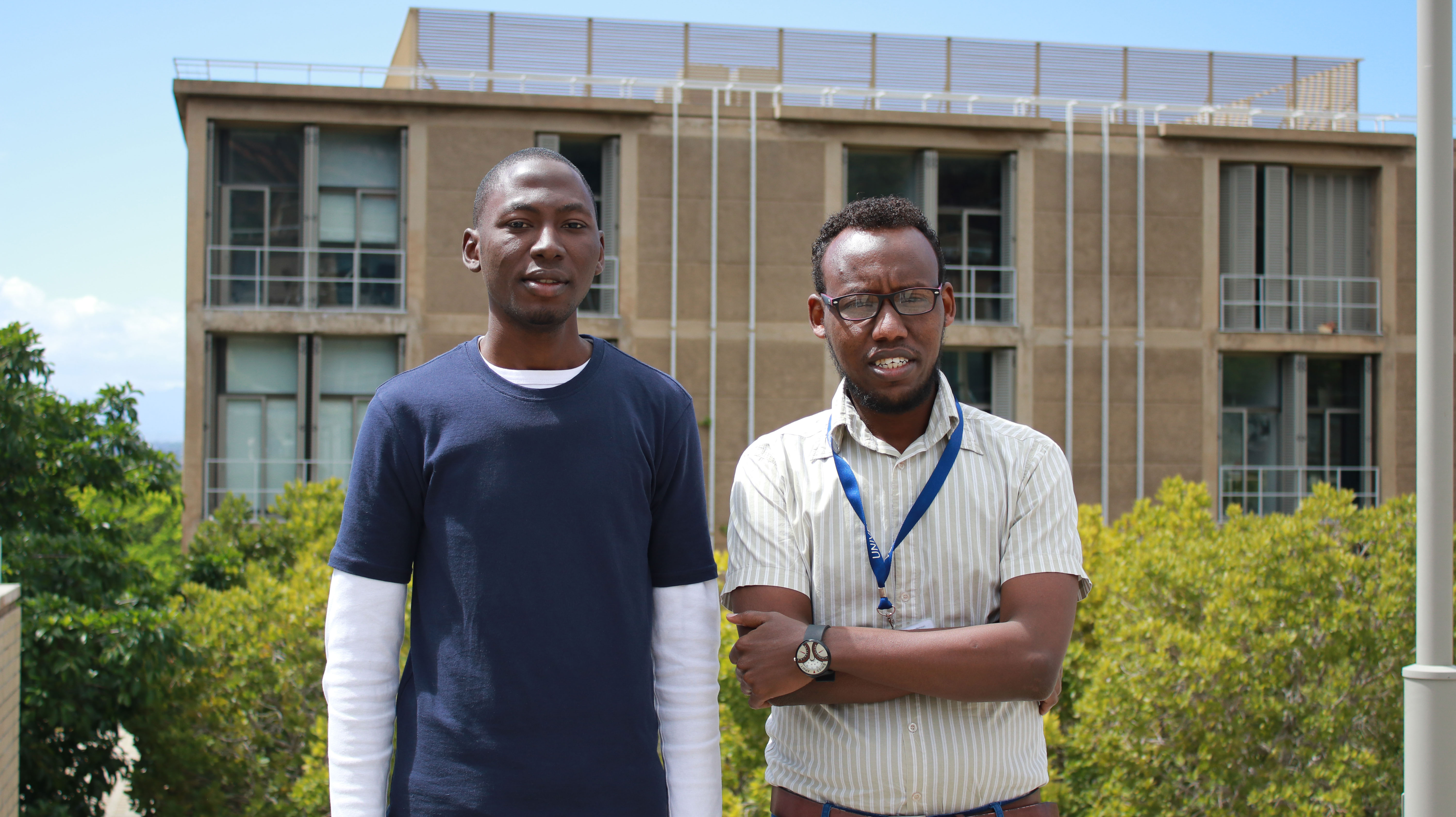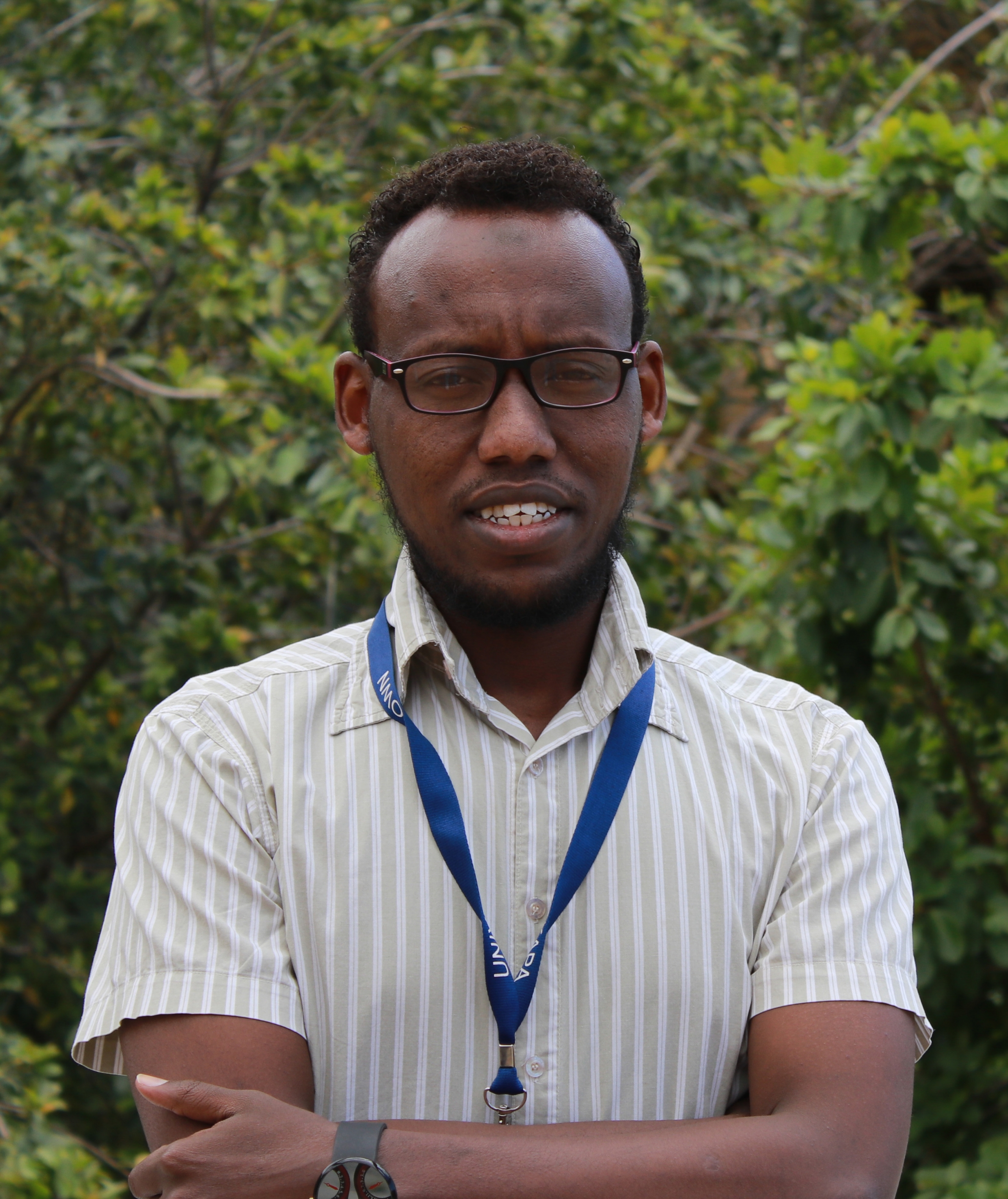“The drought in my community is much more hectic than the Cape Town drought”: Lessons learnt from Mastercard Foundation scholars.


UCT Mastercard Foundation Scholars are drawn from a range of backgrounds and different views of the world, but the research topics they choose are always in areas that directly impact society.
Bishar Mohammed grew up as a nomadic child in the northern part of Kenya. Later, after finishing high school, he developed an urge to develop his community. It was this passion that led to receiving a scholarship from the BOMA Fund Foundation,

Mohammed joined the 2017/18 cohort of Mastercard Foundation Scholars to study a master’s in climate change and sustainable development, with a focus on climate change and conflict.
“In my part of Kenya, the pastoral communities are fighting one another for limited natural resources,” he says. “That’s why I am here, and I hope that I can go back and help my community.”
Although his home town and Cape Town share similar climate challenges, the Cape Town drought is not yet as severe as it is in Kenya. “Here I can see things are green,” says Bishar, “but in the northern part of Kenya, all we have is a drought with no water. The dams are drying. There is nothing like rain and nothing that is green. People depend on the Red Cross and United Nations for relief.
“Even now, the government is transporting animals and animal feed from the Nairobi city area. Where there are green pastures, they cut them and transport them. Some people are even sharing their own meals with their livestock. So, it’s definitely more hectic than the drought here.”
Another Mastercard Foundation Scholar taking a similar master’s programme, Abdulmajid Aminu’s research focuses on the problem of land use, cover and changes that occur within famine areas in Nigeria.

“My research uses GIS (geographic information systems) and remote sensing techniques to assess land-use and land-cover changes, and their impact on food security,” Aminu says. “Because geographic activities are temporally dynamic and vary spatially, there is a need to constantly monitor changes.”
Satellite images and remote sensing are useful tools for solving problems that are vast – that is, covering a large expanse of land. “Using GIS, you can examine the whole world at a glance without many hitches. Because satellite images are taken from space and cover the whole Earth, you can extract data from them and give meaning to your research question or predicament.”
From the view of a passionate environmentalist, Aminu believes that food security is a serious problem not only in Nigeria but on the continent as a whole. His research has found that food tends to spoil before it can be transported to regions in need – sometimes due to biological constraints. “And without food, definitely there will be a big problem within society, which could lead to chaos.
“As such, my research is trying to look at the problem holistically to find a lasting solution to ensuring there is enough food for the whole populace – locally, regionally and even beyond...”
Bishar Mohammed completed his master’s degree in 2017 and is currently working in the Disaster Management Operations Unit within the Kenya Red Cross Society.
Story and photos by Lerato Mokhethi.
